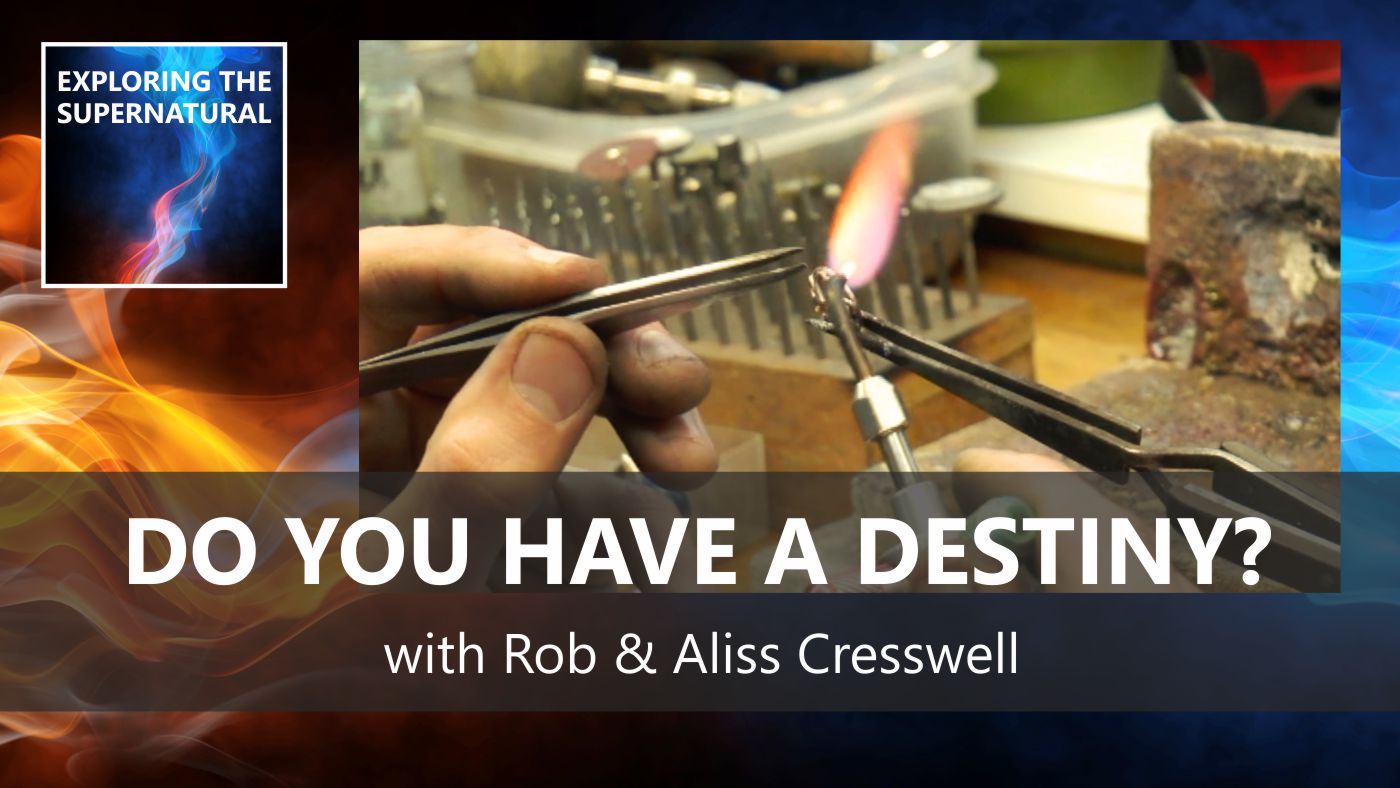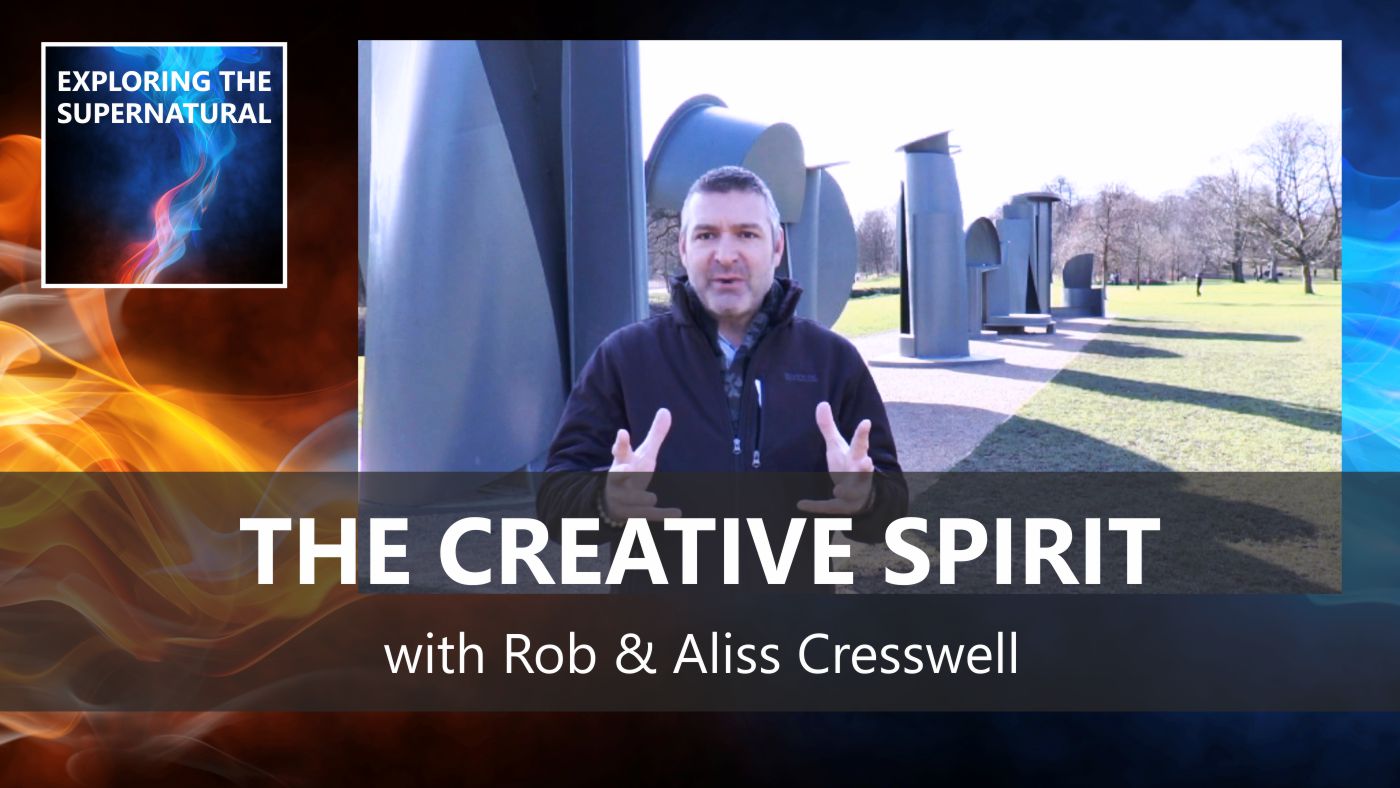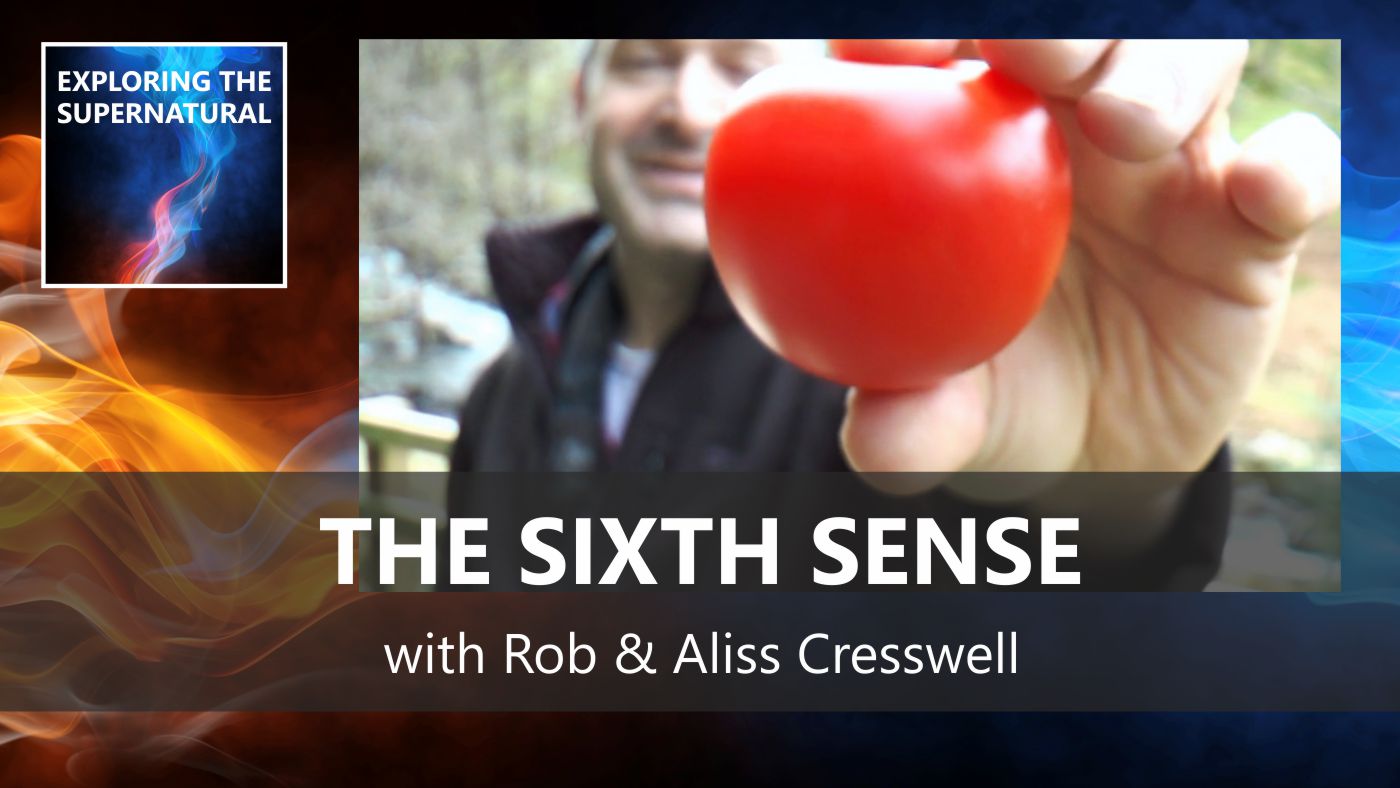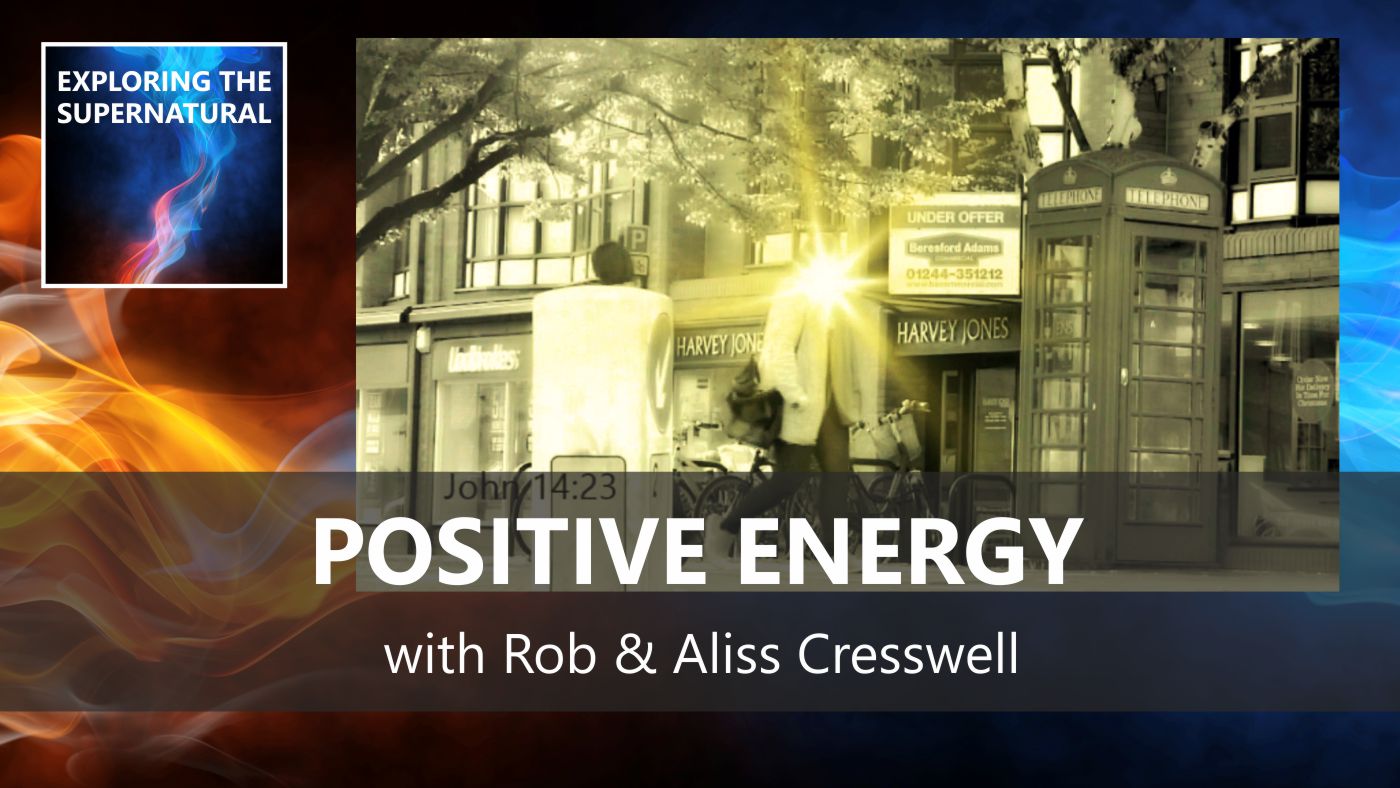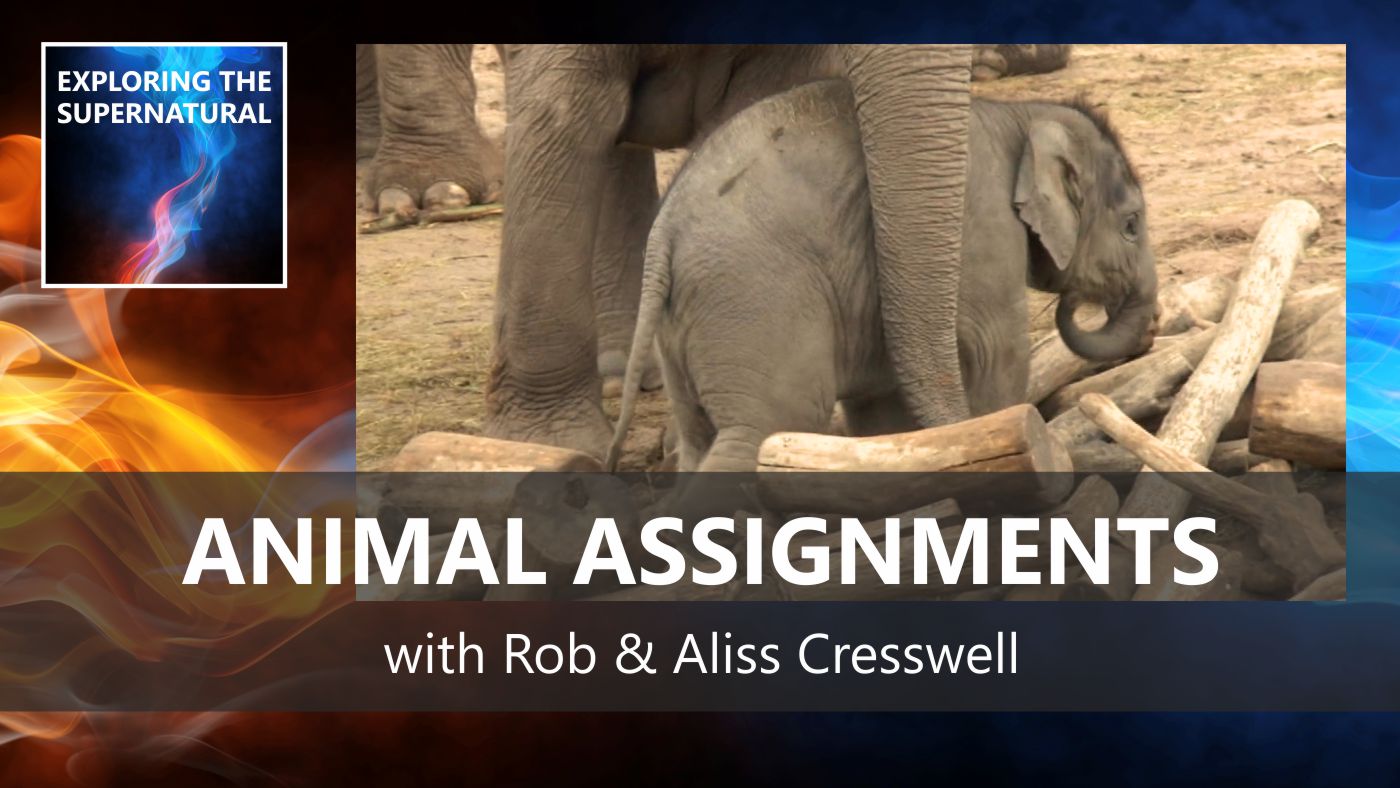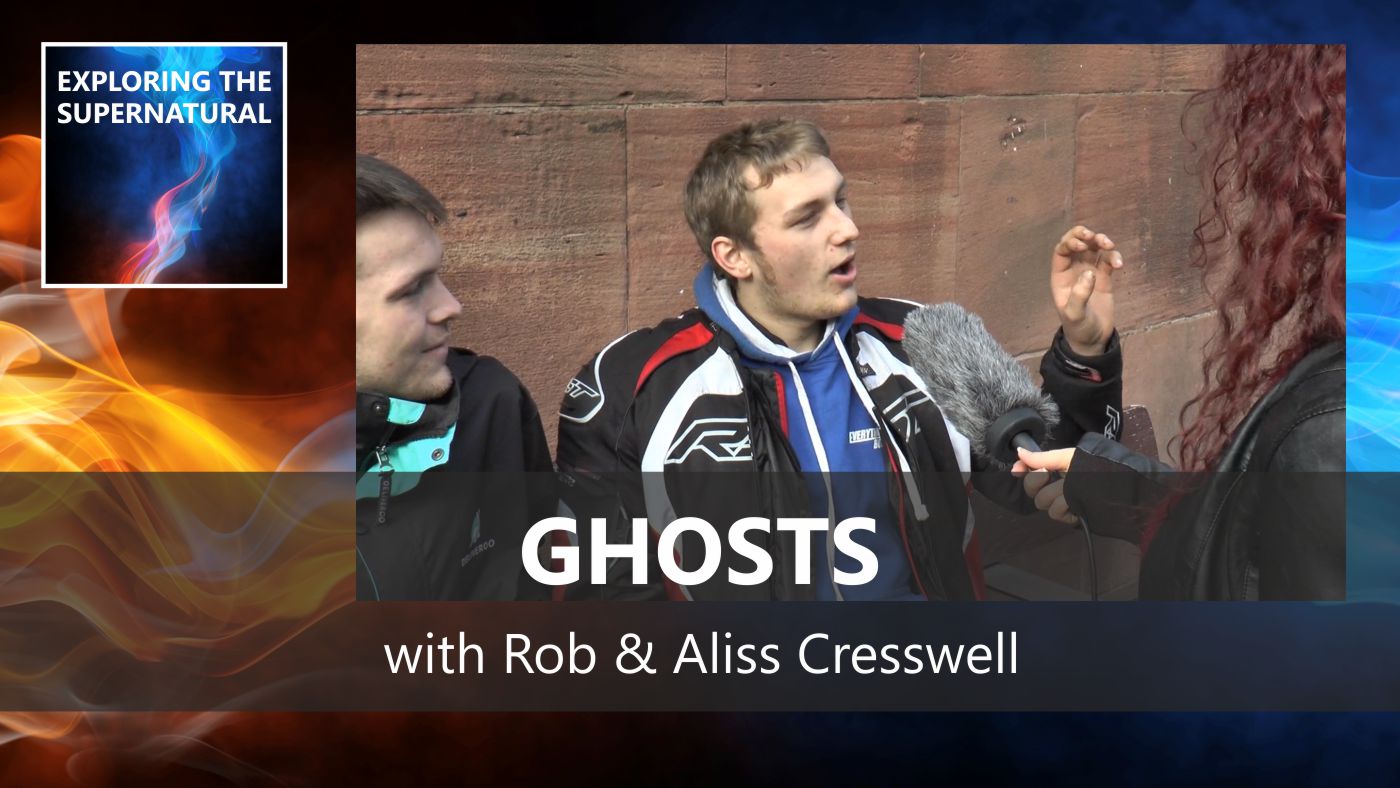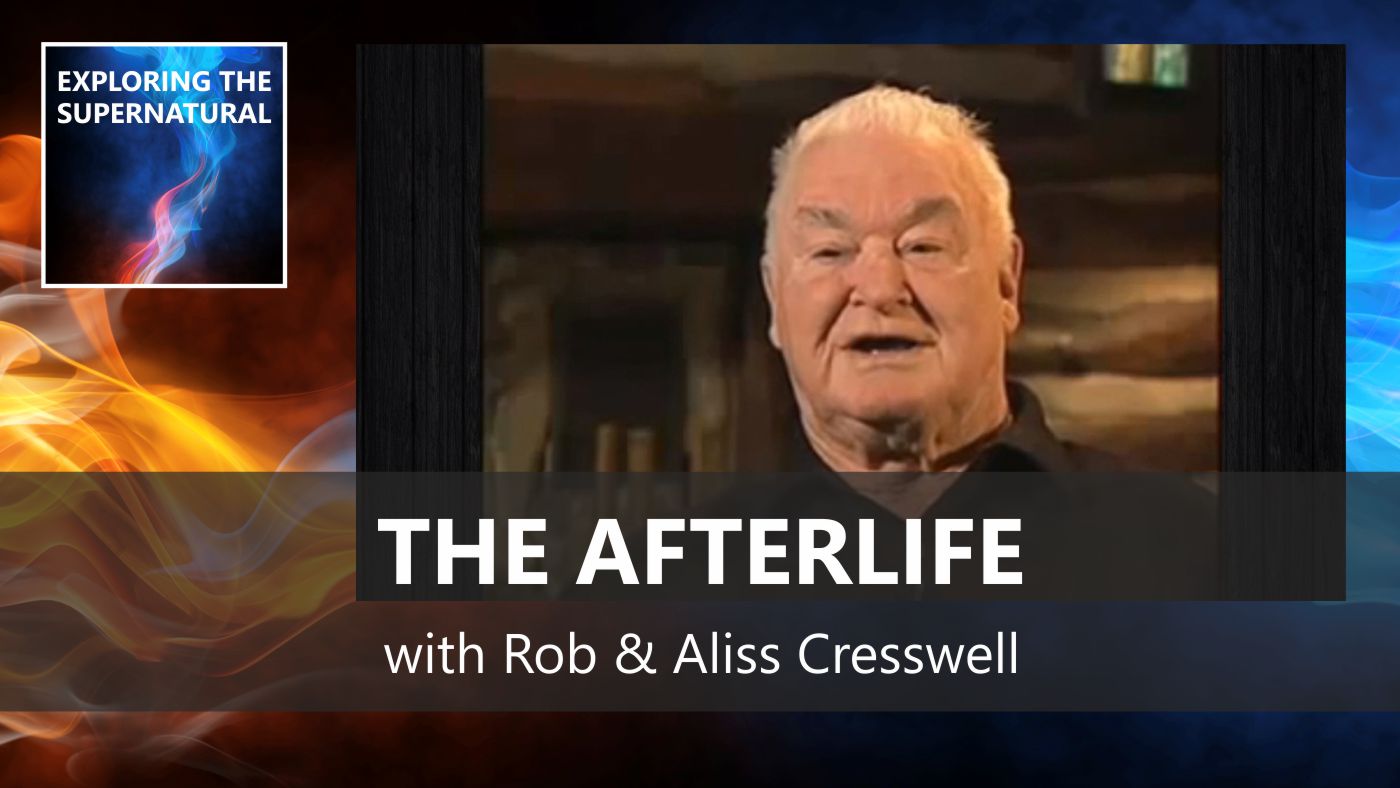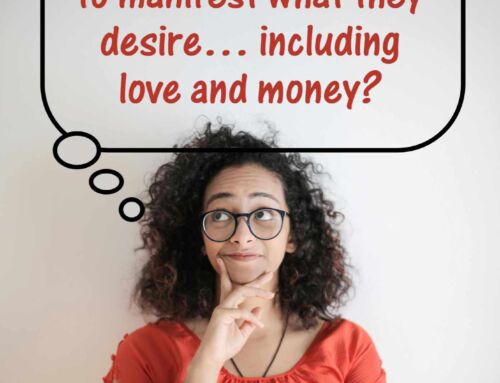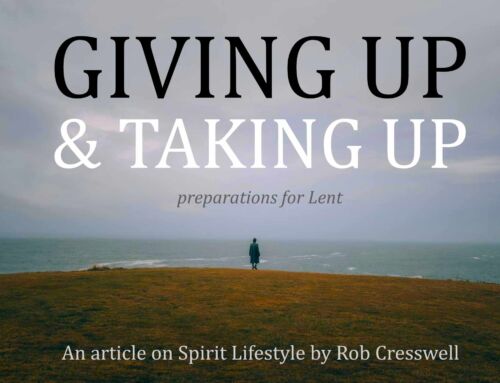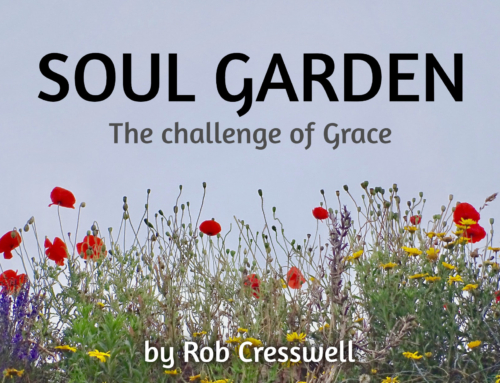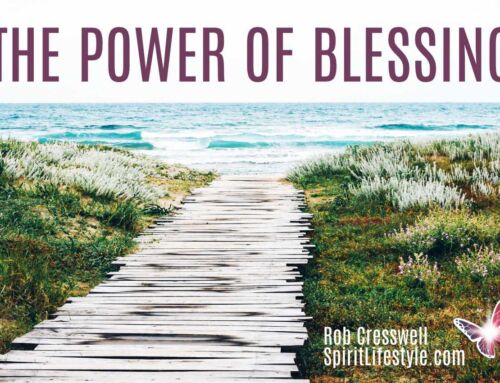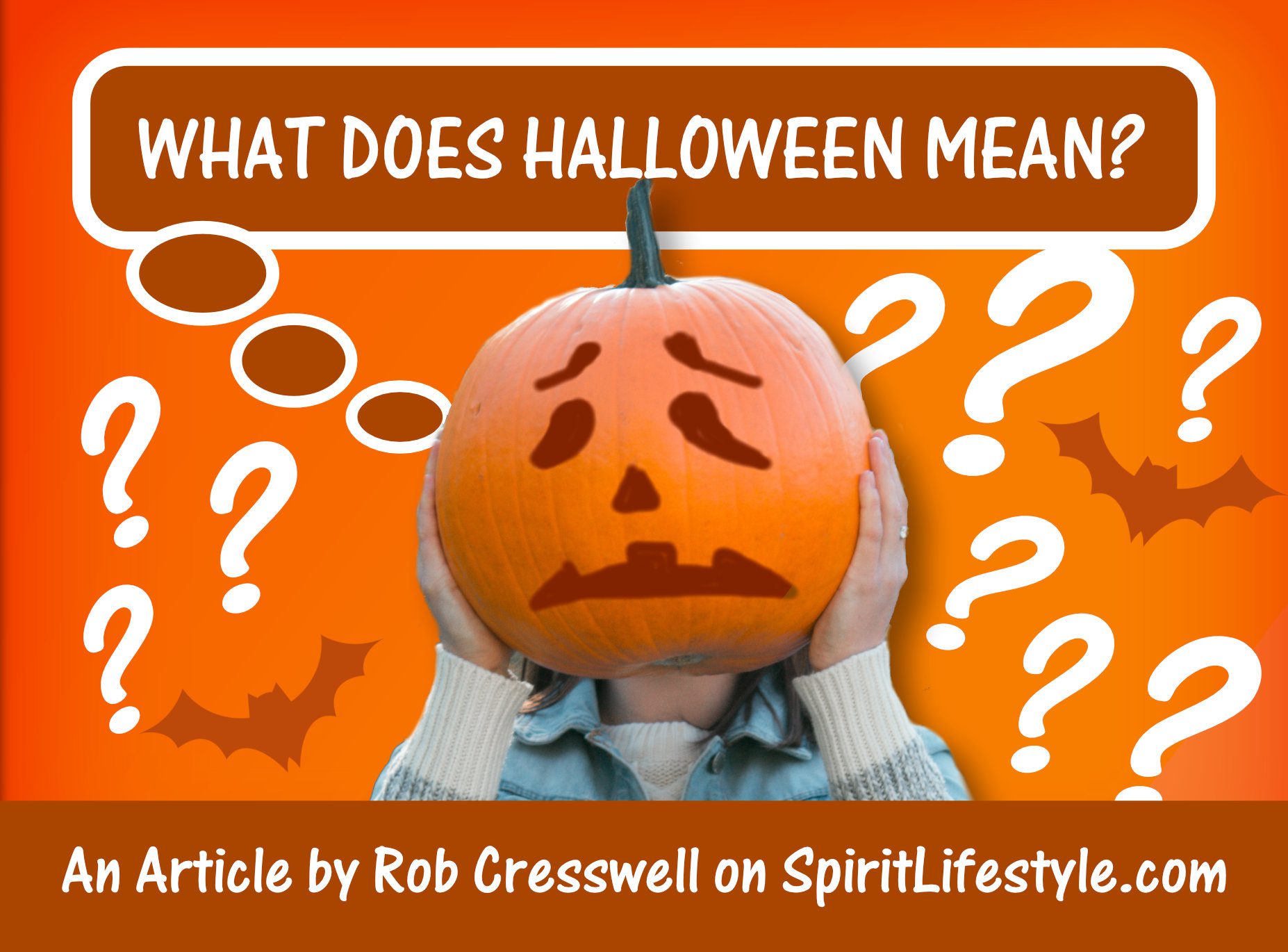
What Does Halloween Mean?
By Rob Cresswell
What Does Halloween Mean?
By Rob Cresswell
‘Trick or treating’, making pumpkin lanterns, dressing up in creepy costumes… What does Halloween mean?
Around this time of year many prepare to celebrate Halloween. As the days get shorter and colder kids do Halloween craftwork at school, homes get decorated with spooky cobwebs, spiders and bats, and pumpkins will get carved with scary faces and lit up with candles. For most this is a fun time of sweets, candy and games. Social media, restaurants and cinema go full-on ‘creepy season’ and shops overflow with treats, costumes and toys for ‘spooktastic’ fun and frolics.
Some may be tempted to explore the darker side of Halloween by dabbling in mediumship (marketed as ‘games’) and spell making ‘kits’. And beyond this still, all kinds of pagan and occult devotees mark the event in their particular ways, from the seemingly harmless to the diabolical. But have you ever wondered where this ‘celebration’ of Halloween comes from? Why do so many of us dress up and play spooky games? What’s it all about?
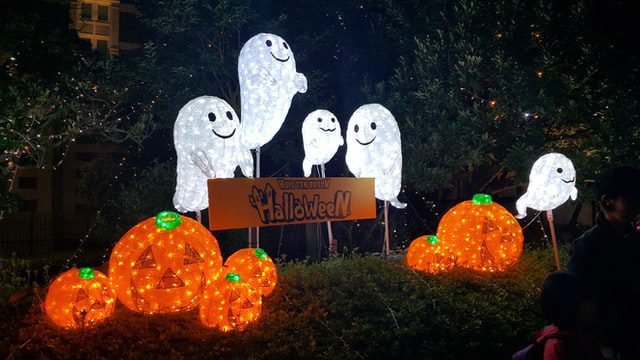
What does Halloween Mean?
The word Halloween actually means “The evening before Hallows (or Saints) day”. It was originally called “All Hallows Eve” and was celebrated on October 31st before “All Hallows Day” on November 1st. It is observed by Roman Catholic and many protestant churches in the west to honour deceased members of the church who have been canonised (recognised as Saints). So why all the scary stuff on the evening before?
Like so many ancient Christian festivals the reason lies in what we might call a (monster) mash-up of pagan and Christian traditions. All Hallows day hasn’t always been on November 1st; up until the 8th century it was on May 13th, until it was moved to the new date by the Pope (Gregory III). Historians suspect it was moved to replace the existing pagan festival of Samhain (in the same way that Christmas day was placed on 25th December – a winter solstice festival).
The Festival of Samhain
The oldest records of pagan celebration on 31st October are linked to the Gaelic Festival of Samhain which was held at a significant turning of the seasons (summer to winter). This seasonal transition was considered to be spiritually ‘thin’ – when the spirit world was ‘closer’ to the material world and would manifest more readily. In the Northern hemisphere this is a time of natural death and dormancy for many plants and animals as winter draws in.
It is believed that the dressing up as ghosts and ghouls was a way to ward off any malignant ghosts and spirits by fooling them into thinking they were just other spirits. In the same way jack-o’-lanterns (pumpkins carved with frightening faces as illuminated with candles) would also ward off evil or mischievous spirits. Many of the mystical rituals from Samhain evolved into games, for example, ‘Bobbing Apples’ in water was originally a form of divination (often to foretell who you would marry). When November 1st became a Saints’ Day perhaps this fed the myth that the old pagan evil spirits would do their worst the night before.

Soul Cakes and Trick or Treat
Strangely enough the practice of ‘trick or treating’ originally came from a Christian influence. From medieval times children would dress up as saints and go door to door on ‘All Hallows Eve’ asking for ‘soul cakes’ – a kind of sweet cookie (similar to a cake called Parkin in England). This was because November 2nd was actually another church day called “All Souls Day”*. In exchange for the soul cakes there would be prayers offered for the household (particularly those who had passed on). It is still practiced in some parts of England and countries such as Portugal and Philippines to this day. This paved the way for the practice of ‘trick or treat’ that became popular in the mid 20th century. So dressing up as saints and asking for soul cakes became dressing up as a witches and ghouls and asking for candy as an insurance against pranking (in the 20th century). What a strange and confused mix up Halloween is!
*All Souls Day, also called ‘The Commemoration of all the Faithful Departed’ – established in the 10th century to allow for, not only honouring of canonised Roman Catholic saints but also all departed relatives. This is why in countries like Mexico ‘The Day of the Dead’ is celebrated on November 1st and 2nd, again, a strange mixture of church and ancient Aztec traditions (notably featured in the opening sequence to the James Bond movie Spectre).
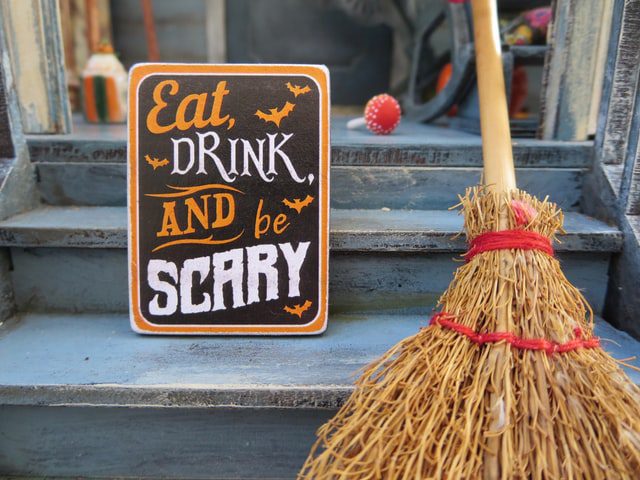
What’s behind the mask?
Because Halloween is such a mixture of things it’s difficult to have a ‘one size fits all’ approach. As far as I can tell, people who engage with any kind of Halloween celebration fall into three basic types:
1. Devout Christian observation of All Saints Day and All Souls Day.
2. Serious observation of pagan and occult practices rooted in Samhain.
3. The modern (mostly secular) widespread tradition of dressing up, partying, dabbling in occult ‘games’, watching spooky movies etc
For the sake of this article I’m going to focus on the third group (largely secular celebration), because this is by far the biggest group. So let’s look at two of the main aspects behind this type of Halloween observation:
1. The thrill of being scared
2. The attraction of the supernatural
1. The thrill of Being Scared: Facing our biggest fears
People have always had a macabre fascination with the ghoulish and the grotesque. From the old English epic Beowulf poem about a terror called Grendel, to Mary Shelly’s monster and Bram Stoker’s Dracula in the nineteenth century, horror fiction has become ever more popular. I remember when I was a kid that we would dare our friends to go into the graveyard at night. Not many were brave enough, it was terrifying! We ‘love’ to try and confront our fears; particularly fears of death, decay and the dead.
Much like the psychology of ‘enjoying’ horror stories and movies, Halloween is perhaps a celebration of facing up to our biggest fears: fears of the dark, fears of monsters, fear of the unknown. For in doing so we hope to conquer those fears, overcoming them, and laugh at them (from a place of safety). But for many Halloween goes far beyond ‘facing down our fears’ – it actually celebrates and glorifies them in a way that is far more likely to feed the monster than to defeat it.
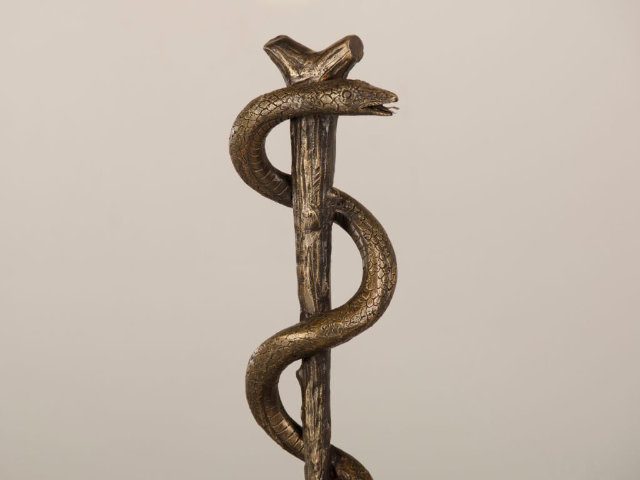
Looking upon the Serpent
In the Old Testament of the Bible there is a story about a time the Israelites were suffering from the bites of ‘fiery serpents’. They had grumbled against God and his servant Moses and the consequence was severe. Moses, always a good mediator for the people, cried out to God for mercy, to which God responded with a rather surprising remedy:
The Lord said to Moses, “Make a snake and put it up on a pole; anyone who is bitten can look at it and live.” Numbers 21:8
So Moses made a bronze serpent and everyone who had been bitten and looked upon the serpent lived. The very thing that had caused them pain and death was the very image that caused them to live! The serpent is the ultimate representation of our ancient enemy, the devil and it represents the curse of death upon mankind (Genesis 3). This is an ancient example of ‘facing up to the monster – bringing deliverance’, but it was also a foreshadowing of an even greater salvation to come.
Jesus Christ is the polar opposite of the serpent. He is the perfect, sinless man; the Son of God. And yet Jesus himself actually identified himself with this bronze serpent in the Gospel of John:
Just as Moses lifted up the snake in the wilderness, so the Son of Man must be lifted up, that everyone who believes may have eternal life in him.” John 3:14-15
He was referring to the way in which he would be lifted up and crucified on the cross. He would in effect, become everything we fear: pain, suffering, humiliation and death. In this respect we could say the heart of Christianity is the ultimate expression of this desire to ‘face and conquer the monster’ because in the crucifixion of Jesus we see all our worst fears put on display. Scripture teaches us that in his crucifixion Jesus became ‘our curse’, ‘our monster’, ‘our worst nightmare’ (Galatians 3:13). However, in doing so he truly conquered all these horrors on our behalf. In a mysterious way, the crucified Jesus is our worst us. However – when he rises from the dead in glory he is also our best us! He really did defeat death and decay. Not only rising from the dead in glory himself (Mark 10:9) but also bringing us into the promise of the light of life:
“For he has rescued us from the dominion of darkness and brought us into the kingdom of the Son he loves, in whom we have redemption, the forgiveness of sins.” Colossians 1
So whatever you are doing this Halloween I hope that you would know that in Jesus there is nothing to fear – because for all who look upon the cross of Jesus and believe in him (that he is God’s Son, the saviour of the word), the fright-fest of the crucifixion, and therefore all there is to fear in this life is over. It’s not that bad things won’t happen to us, but that we can face them with hope, confidence and a bright future. We do not need to fear ghosts, or demons or even death; in fact we have much to enjoy and celebrate!
having cancelled the charge of our legal indebtedness, which stood against us and condemned us; he has taken it away, nailing it to the cross. And having disarmed the powers and authorities, he made a public spectacle of them, triumphing over them by the cross… Colossians 2:14-15
2. The Attraction of the Supernatural
Despite modern science and technology our appetite for the supernatural seems to be ever increasing. From the Harry Potter series (the best selling novels of all time), to the Marvel Cinematic Universe and Paranormal TV, we can’t seem to get enough.
From a Christian point of view this should be very understandable. The Bible is one of the most supernatural books on the planet! Most pages of the Bible are filled with miracles and supernatural events. God himself is, by definition, supernatural (that which is outside of nature, or spiritual – John 4:24). By strict definition Jesus was one of the most supernatural men that walked the earth. So, no wonder then, that as those created in the divine image (Genesis 2), that we are ‘wired’ to desire the supernatural.
However, there are good spiritual powers and bad spiritual powers. In regard to the idea of ‘spiritual power or protection’ in Halloween – you can be sure that dressing up as Dracula and messing with Ouija boards isn’t going to help. The Bible teaches us that if we want to enjoy a healthy and long life then we should steer well clear of anything associated with the occult: divination, mediumship and spell casting (Deuteronomy 18:10-12a). If we truly desire peace, health and freedom, these activities will make things worse for us, not better!
Furthermore, these occult practices are poor counterfeits of the true supernatural manifestations of the Holy Spirit filled life: prophecy, healing and true spiritual authority.
The spiritual dimension certainly is real and there are spiritual entities and powers that will cause us great harm if given permission or invitation to manifest through occult paraphernalia. The Bible teaches that divine protection through faith in Jesus Christ is the only true antidote to spiritual attack:
“Take up the shield of faith, with which you can extinguish all the flaming arrows of the evil one.” Ephesians 6:16
We have met many who have unwittingly got involved and entangled in witchcraft and mediumship. What may have started off as ‘a game’ or ‘harmless fun’ had quickly spiralled out of control and trapped them in demonic oppression and fear, yielding all kinds of physical and mental health issues.
The good news is that for those who truly desire to be free the Lord Jesus offers a way out of it and a brand new life.
“for, “Everyone who calls on the name of the Lord will be saved.” Romans 10:13
“For I am convinced that neither death nor life, neither angels nor demons, neither the present nor the future, nor any powers, neither height nor depth, nor anything else in all creation, will be able to separate us from the love of God that is in Christ Jesus our Lord.” Romans 8:38
So, what does Halloween mean?
Halloween is many things to many different people: holy festival, pagan or occult festival and party time – all rolled into one! For many it is a time of superstition, revelry, spiritual experimentation and playing with fear of the paranormal. As I’ve said, there certainly are very real dangers for those who choose to participate in any occult activity (at any time) and Halloween is no different. However, for most, much like Easter and Christmas, it’s a time for fun and games and treats – spooky ones!
So this Halloween, as you’re carving your Jack-o-lantern with the kids, maybe remember that there’s only one who will truly ward away the evils of this world and the next. Jesus brings us into our ‘day of the saints’ because he came to do away with all our fears and nightmares when he died on the cross and did away with them forever. Jesus is the one that delivers us from all evil and restores us to the supernaturally divine life we were created for. Now that’s worth celebrating!
‘EXPLORING THE SUPERNATURAL’ Video Training Series
‘EXPLORING THE SUPERNATURAL’ TAKES TO THE STREETS AND ASKS EVERYDAY PEOPLE WHAT THEY THINK ABOUT COMMON NOTIONS OF SPIRITUALITY INCLUDING: GHOSTS, DESTINY, POSTIVE ENERGY AND THE AFTER LIFE.
8 x 20 minute episodes
FEATURED EXTRACT:
GHOSTS
Many people speak of seeing ghosts or experiencing a place that is haunted. It’s a commonly held belief that these are the spirits of the dead in limbo… but what does the Bible have to say about ghosts? Get access to the full ‘EXPLORING THE SUPERNATURAL’ series and 100+ training videos by subscribing for a free trail (and name your price) below.
‘Trick or treating’, making pumpkin lanterns, dressing up in creepy costumes… What does Halloween mean?
Around this time of year many prepare to celebrate Halloween. As the days get shorter and colder kids do Halloween craftwork at school, homes get decorated with spooky cobwebs, spiders and bats, and pumpkins will get carved with scary faces and lit up with candles. For most this is a fun time of sweets, candy and games. Social media, restaurants and cinema go full-on ‘creepy season’ and shops overflow with treats, costumes and toys for ‘spooktastic’ fun and frolics.
Some may be tempted to explore the darker side of Halloween by dabbling in mediumship (marketed as ‘games’) and spell making ‘kits’. And beyond this still, all kinds of pagan and occult devotees mark the event in their particular ways, from the seemingly harmless to the diabolical. But have you ever wondered where this ‘celebration’ of Halloween comes from? Why do so many of us dress up and play spooky games? What’s it all about?

What does Halloween Mean?
The word Halloween actually means “The evening before Hallows (or Saints) day”. It was originally called “All Hallows Eve” and was celebrated on October 31st before “All Hallows Day” on November 1st. It is observed by Roman Catholic and many protestant churches in the west to honour deceased members of the church who have been canonised (recognised as Saints). So why all the scary stuff on the evening before?
Like so many ancient Christian festivals the reason lies in what we might call a (monster) mash-up of pagan and Christian traditions. All Hallows day hasn’t always been on November 1st; up until the 8th century it was on May 13th, until it was moved to the new date by the Pope (Gregory III). Historians suspect it was moved to replace the existing pagan festival of Samhain (in the same way that Christmas day was placed on 25th December – a winter solstice festival).
The Festival of Samhain
The oldest records of pagan celebration on 31st October are linked to the Gaelic Festival of Samhain which was held at a significant turning of the seasons (summer to winter). This seasonal transition was considered to be spiritually ‘thin’ – when the spirit world was ‘closer’ to the material world and would manifest more readily. In the Northern hemisphere this is a time of natural death and dormancy for many plants and animals as winter draws in.
It is believed that the dressing up as ghosts and ghouls was a way to ward off any malignant ghosts and spirits by fooling them into thinking they were just other spirits. In the same way jack-o’-lanterns (pumpkins carved with frightening faces as illuminated with candles) would also ward off evil or mischievous spirits. Many of the mystical rituals from Samhain evolved into games, for example, ‘Bobbing Apples’ in water was originally a form of divination (often to foretell who you would marry). When November 1st became a Saints’ Day perhaps this fed the myth that the old pagan evil spirits would do their worst the night before.

Soul Cakes and Trick or Treat
Strangely enough the practice of ‘trick or treating’ originally came from a Christian influence. From medieval times children would dress up as saints and go door to door on ‘All Hallows Eve’ asking for ‘soul cakes’ – a kind of sweet cookie (similar to a cake called Parkin in England). This was because November 2nd was actually another church day called “All Souls Day”*. In exchange for the soul cakes there would be prayers offered for the household (particularly those who had passed on). It is still practiced in some parts of England and countries such as Portugal and Philippines to this day. This paved the way for the practice of ‘trick or treat’ that became popular in the mid 20th century. So dressing up as saints and asking for soul cakes became dressing up as a witches and ghouls and asking for candy as an insurance against pranking (in the 20th century). What a strange and confused mix up Halloween is!
*All Souls Day, also called ‘The Commemoration of all the Faithful Departed’ – established in the 10th century to allow for, not only honouring of canonised Roman Catholic saints but also all departed relatives. This is why in countries like Mexico ‘The Day of the Dead’ is celebrated on November 1st and 2nd, again, a strange mixture of church and ancient Aztec traditions (notably featured in the opening sequence to the James Bond movie Spectre).

What’s behind the mask?
Because Halloween is such a mixture of things it’s difficult to have a ‘one size fits all’ approach. As far as I can tell, people who engage with any kind of Halloween celebration fall into three basic types:
1. Devout Christian observation of All Saints Day and All Souls Day.
2. Serious observation of pagan and occult practices rooted in Samhain.
3. The modern (mostly secular) widespread tradition of dressing up, partying, dabbling in occult ‘games’, watching spooky movies etc
For the sake of this article I’m going to focus on the third group (largely secular celebration), because this is by far the biggest group. So let’s look at two of the main aspects behind this type of Halloween observation:
1. The thrill of being scared
2. The attraction of the supernatural
1. The thrill of Being Scared: Facing our biggest fears
People have always had a macabre fascination with the ghoulish and the grotesque. From the old English epic Beowulf poem about a terror called Grendel, to Mary Shelly’s monster and Bram Stoker’s Dracula in the nineteenth century, horror fiction has become ever more popular. I remember when I was a kid that we would dare our friends to go into the graveyard at night. Not many were brave enough, it was terrifying! We ‘love’ to try and confront our fears; particularly fears of death, decay and the dead.
Much like the psychology of ‘enjoying’ horror stories and movies, Halloween is perhaps a celebration of facing up to our biggest fears: fears of the dark, fears of monsters, fear of the unknown. For in doing so we hope to conquer those fears, overcoming them, and laugh at them (from a place of safety). But for many Halloween goes far beyond ‘facing down our fears’ – it actually celebrates and glorifies them in a way that is far more likely to feed the monster than to defeat it.

Looking upon the Serpent
In the Old Testament of the Bible there is a story about a time the Israelites were suffering from the bites of ‘fiery serpents’. They had grumbled against God and his servant Moses and the consequence was severe. Moses, always a good mediator for the people, cried out to God for mercy, to which God responded with a rather surprising remedy:
The Lord said to Moses, “Make a snake and put it up on a pole; anyone who is bitten can look at it and live.” Numbers 21:8
So Moses made a bronze serpent and everyone who had been bitten and looked upon the serpent lived. The very thing that had caused them pain and death was the very image that caused them to live! The serpent is the ultimate representation of our ancient enemy, the devil and it represents the curse of death upon mankind (Genesis 3). This is an ancient example of ‘facing up to the monster – bringing deliverance’, but it was also a foreshadowing of an even greater salvation to come.
Jesus Christ is the polar opposite of the serpent. He is the perfect, sinless man; the Son of God. And yet Jesus himself actually identified himself with this bronze serpent in the Gospel of John:
Just as Moses lifted up the snake in the wilderness, so the Son of Man must be lifted up, that everyone who believes may have eternal life in him.” John 3:14-15
He was referring to the way in which he would be lifted up and crucified on the cross. He would in effect, become everything we fear: pain, suffering, humiliation and death. In this respect we could say the heart of Christianity is the ultimate expression of this desire to ‘face and conquer the monster’ because in the crucifixion of Jesus we see all our worst fears put on display. Scripture teaches us that in his crucifixion Jesus became ‘our curse’, ‘our monster’, ‘our worst nightmare’ (Galatians 3:13). However, in doing so he truly conquered all these horrors on our behalf. In a mysterious way, the crucified Jesus is our worst us. However – when he rises from the dead in glory he is also our best us! He really did defeat death and decay. Not only rising from the dead in glory himself (Mark 10:9) but also bringing us into the promise of the light of life:
“For he has rescued us from the dominion of darkness and brought us into the kingdom of the Son he loves, in whom we have redemption, the forgiveness of sins.” Colossians 1
So whatever you are doing this Halloween I hope that you would know that in Jesus there is nothing to fear – because for all who look upon the cross of Jesus and believe in him (that he is God’s Son, the saviour of the word), the fright-fest of the crucifixion, and therefore all there is to fear in this life is over. It’s not that bad things won’t happen to us, but that we can face them with hope, confidence and a bright future. We do not need to fear ghosts, or demons or even death; in fact we have much to enjoy and celebrate!
having cancelled the charge of our legal indebtedness, which stood against us and condemned us; he has taken it away, nailing it to the cross. And having disarmed the powers and authorities, he made a public spectacle of them, triumphing over them by the cross… Colossians 2:14-15
2. The Attraction of the Supernatural
Despite modern science and technology our appetite for the supernatural seems to be ever increasing. From the Harry Potter series (the best selling novels of all time), to the Marvel Cinematic Universe and Paranormal TV, we can’t seem to get enough.
From a Christian point of view this should be very understandable. The Bible is one of the most supernatural books on the planet! Most pages of the Bible are filled with miracles and supernatural events. God himself is, by definition, supernatural (that which is outside of nature, or spiritual – John 4:24). By strict definition Jesus was one of the most supernatural men that walked the earth. So, no wonder then, that as those created in the divine image (Genesis 2), that we are ‘wired’ to desire the supernatural.
However, there are good spiritual powers and bad spiritual powers. In regard to the idea of ‘spiritual power or protection’ in Halloween – you can be sure that dressing up as Dracula and messing with Ouija boards isn’t going to help. The Bible teaches us that if we want to enjoy a healthy and long life then we should steer well clear of anything associated with the occult: divination, mediumship and spell casting (Deuteronomy 18:10-12a). If we truly desire peace, health and freedom, these activities will make things worse for us, not better!
Furthermore, these occult practices are poor counterfeits of the true supernatural manifestations of the Holy Spirit filled life: prophecy, healing and true spiritual authority.
The spiritual dimension certainly is real and there are spiritual entities and powers that will cause us great harm if given permission or invitation to manifest through occult paraphernalia. The Bible teaches that divine protection through faith in Jesus Christ is the only true antidote to spiritual attack:
“Take up the shield of faith, with which you can extinguish all the flaming arrows of the evil one.” Ephesians 6:16
We have met many who have unwittingly got involved and entangled in witchcraft and mediumship. What may have started off as ‘a game’ or ‘harmless fun’ had quickly spiralled out of control and trapped them in demonic oppression and fear, yielding all kinds of physical and mental health issues.
The good news is that for those who truly desire to be free the Lord Jesus offers a way out of it and a brand new life.
“for, “Everyone who calls on the name of the Lord will be saved.” Romans 10:13
“For I am convinced that neither death nor life, neither angels nor demons, neither the present nor the future, nor any powers, neither height nor depth, nor anything else in all creation, will be able to separate us from the love of God that is in Christ Jesus our Lord.” Romans 8:38
So, what does Halloween mean?
Halloween is many things to many different people: holy festival, pagan or occult festival and party time – all rolled into one! For many it is a time of superstition, revelry, spiritual experimentation and playing with fear of the paranormal. As I’ve said, there certainly are very real dangers for those who choose to participate in any occult activity (at any time) and Halloween is no different. However, for most, much like Easter and Christmas, it’s a time for fun and games and treats – spooky ones!
So this Halloween, as you’re carving your Jack-o-lantern with the kids, maybe remember that there’s only one who will truly ward away the evils of this world and the next. Jesus brings us into our ‘day of the saints’ because he came to do away with all our fears and nightmares when he died on the cross and did away with them forever. Jesus is the one that delivers us from all evil and restores us to the supernaturally divine life we were created for. Now that’s worth celebrating!
‘EXPLORING THE SUPERNATURAL’ Video Training Series
‘EXPLORING THE SUPERNATURAL’ TAKES TO THE STREETS AND ASKS EVERYDAY PEOPLE WHAT THEY THINK ABOUT COMMON NOTIONS OF SPIRITUALITY INCLUDING: GHOSTS, DESTINY, POSTIVE ENERGY AND THE AFTER LIFE.
8 x 20 minute episodes
FEATURED EXTRACT:
GHOSTS
Many people speak of seeing ghosts or experiencing a place that is haunted. It’s a commonly held belief that these are the spirits of the dead in limbo… but what does the Bible have to say about ghosts? Get access to the full ‘EXPLORING THE SUPERNATURAL’ series and 100+ training videos by subscribing for a free trail (and name your price) below.
‘Trick or treating’, making pumpkin lanterns, dressing up in creepy costumes… What does Halloween mean?
Around this time of year many prepare to celebrate Halloween. As the days get shorter and colder kids do Halloween craftwork at school, homes get decorated with spooky cobwebs, spiders and bats, and pumpkins will get carved with scary faces and lit up with candles. For most this is a fun time of sweets, candy and games. Social media, restaurants and cinema go full-on ‘creepy season’ and shops overflow with treats, costumes and toys for ‘spooktastic’ fun and frolics.
Some may be tempted to explore the darker side of Halloween by dabbling in mediumship (marketed as ‘games’) and spell making ‘kits’. And beyond this still, all kinds of pagan and occult devotees mark the event in their particular ways, from the seemingly harmless to the diabolical. But have you ever wondered where this ‘celebration’ of Halloween comes from? Why do so many of us dress up and play spooky games? What’s it all about?

What does Halloween Mean?
The word Halloween actually means “The evening before Hallows (or Saints) day”. It was originally called “All Hallows Eve” and was celebrated on October 31st before “All Hallows Day” on November 1st. It is observed by Roman Catholic and many protestant churches in the west to honour deceased members of the church who have been canonised (recognised as Saints). So why all the scary stuff on the evening before?
Like so many ancient Christian festivals the reason lies in what we might call a (monster) mash-up of pagan and Christian traditions. All Hallows day hasn’t always been on November 1st; up until the 8th century it was on May 13th, until it was moved to the new date by the Pope (Gregory III). Historians suspect it was moved to replace the existing pagan festival of Samhain (in the same way that Christmas day was placed on 25th December – a winter solstice festival).
The Festival of Samhain
The oldest records of pagan celebration on 31st October are linked to the Gaelic Festival of Samhain which was held at a significant turning of the seasons (summer to winter). This seasonal transition was considered to be spiritually ‘thin’ – when the spirit world was ‘closer’ to the material world and would manifest more readily. In the Northern hemisphere this is a time of natural death and dormancy for many plants and animals as winter draws in.
It is believed that the dressing up as ghosts and ghouls was a way to ward off any malignant ghosts and spirits by fooling them into thinking they were just other spirits. In the same way jack-o’-lanterns (pumpkins carved with frightening faces as illuminated with candles) would also ward off evil or mischievous spirits. Many of the mystical rituals from Samhain evolved into games, for example, ‘Bobbing Apples’ in water was originally a form of divination (often to foretell who you would marry). When November 1st became a Saints’ Day perhaps this fed the myth that the old pagan evil spirits would do their worst the night before.

Soul Cakes and Trick or Treat
Strangely enough the practice of ‘trick or treating’ originally came from a Christian influence. From medieval times children would dress up as saints and go door to door on ‘All Hallows Eve’ asking for ‘soul cakes’ – a kind of sweet cookie (similar to a cake called Parkin in England). This was because November 2nd was actually another church day called “All Souls Day”*. In exchange for the soul cakes there would be prayers offered for the household (particularly those who had passed on). It is still practiced in some parts of England and countries such as Portugal and Philippines to this day. This paved the way for the practice of ‘trick or treat’ that became popular in the mid 20th century. So dressing up as saints and asking for soul cakes became dressing up as a witches and ghouls and asking for candy as an insurance against pranking (in the 20th century). What a strange and confused mix up Halloween is!
*All Souls Day, also called ‘The Commemoration of all the Faithful Departed’ – established in the 10th century to allow for, not only honouring of canonised Roman Catholic saints but also all departed relatives. This is why in countries like Mexico ‘The Day of the Dead’ is celebrated on November 1st and 2nd, again, a strange mixture of church and ancient Aztec traditions (notably featured in the opening sequence to the James Bond movie Spectre).

What’s behind the mask?
Because Halloween is such a mixture of things it’s difficult to have a ‘one size fits all’ approach. As far as I can tell, people who engage with any kind of Halloween celebration fall into three basic types:
1. Devout Christian observation of All Saints Day and All Souls Day.
2. Serious observation of pagan and occult practices rooted in Samhain.
3. The modern (mostly secular) widespread tradition of dressing up, partying, dabbling in occult ‘games’, watching spooky movies etc
For the sake of this article I’m going to focus on the third group (largely secular celebration), because this is by far the biggest group. So let’s look at two of the main aspects behind this type of Halloween observation:
1. The thrill of being scared
2. The attraction of the supernatural
1. The thrill of Being Scared: Facing our biggest fears
People have always had a macabre fascination with the ghoulish and the grotesque. From the old English epic Beowulf poem about a terror called Grendel, to Mary Shelly’s monster and Bram Stoker’s Dracula in the nineteenth century, horror fiction has become ever more popular. I remember when I was a kid that we would dare our friends to go into the graveyard at night. Not many were brave enough, it was terrifying! We ‘love’ to try and confront our fears; particularly fears of death, decay and the dead.
Much like the psychology of ‘enjoying’ horror stories and movies, Halloween is perhaps a celebration of facing up to our biggest fears: fears of the dark, fears of monsters, fear of the unknown. For in doing so we hope to conquer those fears, overcoming them, and laugh at them (from a place of safety). But for many Halloween goes far beyond ‘facing down our fears’ – it actually celebrates and glorifies them in a way that is far more likely to feed the monster than to defeat it.

Looking upon the Serpent
In the Old Testament of the Bible there is a story about a time the Israelites were suffering from the bites of ‘fiery serpents’. They had grumbled against God and his servant Moses and the consequence was severe. Moses, always a good mediator for the people, cried out to God for mercy, to which God responded with a rather surprising remedy:
The Lord said to Moses, “Make a snake and put it up on a pole; anyone who is bitten can look at it and live.” Numbers 21:8
So Moses made a bronze serpent and everyone who had been bitten and looked upon the serpent lived. The very thing that had caused them pain and death was the very image that caused them to live! The serpent is the ultimate representation of our ancient enemy, the devil and it represents the curse of death upon mankind (Genesis 3). This is an ancient example of ‘facing up to the monster – bringing deliverance’, but it was also a foreshadowing of an even greater salvation to come.
Jesus Christ is the polar opposite of the serpent. He is the perfect, sinless man; the Son of God. And yet Jesus himself actually identified himself with this bronze serpent in the Gospel of John:
Just as Moses lifted up the snake in the wilderness, so the Son of Man must be lifted up, that everyone who believes may have eternal life in him.” John 3:14-15
He was referring to the way in which he would be lifted up and crucified on the cross. He would in effect, become everything we fear: pain, suffering, humiliation and death. In this respect we could say the heart of Christianity is the ultimate expression of this desire to ‘face and conquer the monster’ because in the crucifixion of Jesus we see all our worst fears put on display. Scripture teaches us that in his crucifixion Jesus became ‘our curse’, ‘our monster’, ‘our worst nightmare’ (Galatians 3:13). However, in doing so he truly conquered all these horrors on our behalf. In a mysterious way, the crucified Jesus is our worst us. However – when he rises from the dead in glory he is also our best us! He really did defeat death and decay. Not only rising from the dead in glory himself (Mark 10:9) but also bringing us into the promise of the light of life:
“For he has rescued us from the dominion of darkness and brought us into the kingdom of the Son he loves, in whom we have redemption, the forgiveness of sins.” Colossians 1
So whatever you are doing this Halloween I hope that you would know that in Jesus there is nothing to fear – because for all who look upon the cross of Jesus and believe in him (that he is God’s Son, the saviour of the word), the fright-fest of the crucifixion, and therefore all there is to fear in this life is over. It’s not that bad things won’t happen to us, but that we can face them with hope, confidence and a bright future. We do not need to fear ghosts, or demons or even death; in fact we have much to enjoy and celebrate!
having cancelled the charge of our legal indebtedness, which stood against us and condemned us; he has taken it away, nailing it to the cross. And having disarmed the powers and authorities, he made a public spectacle of them, triumphing over them by the cross… Colossians 2:14-15
2. The Attraction of the Supernatural
Despite modern science and technology our appetite for the supernatural seems to be ever increasing. From the Harry Potter series (the best selling novels of all time), to the Marvel Cinematic Universe and Paranormal TV, we can’t seem to get enough.
From a Christian point of view this should be very understandable. The Bible is one of the most supernatural books on the planet! Most pages of the Bible are filled with miracles and supernatural events. God himself is, by definition, supernatural (that which is outside of nature, or spiritual – John 4:24). By strict definition Jesus was one of the most supernatural men that walked the earth. So, no wonder then, that as those created in the divine image (Genesis 2), that we are ‘wired’ to desire the supernatural.
However, there are good spiritual powers and bad spiritual powers. In regard to the idea of ‘spiritual power or protection’ in Halloween – you can be sure that dressing up as Dracula and messing with Ouija boards isn’t going to help. The Bible teaches us that if we want to enjoy a healthy and long life then we should steer well clear of anything associated with the occult: divination, mediumship and spell casting (Deuteronomy 18:10-12a). If we truly desire peace, health and freedom, these activities will make things worse for us, not better!
Furthermore, these occult practices are poor counterfeits of the true supernatural manifestations of the Holy Spirit filled life: prophecy, healing and true spiritual authority.
The spiritual dimension certainly is real and there are spiritual entities and powers that will cause us great harm if given permission or invitation to manifest through occult paraphernalia. The Bible teaches that divine protection through faith in Jesus Christ is the only true antidote to spiritual attack:
“Take up the shield of faith, with which you can extinguish all the flaming arrows of the evil one.” Ephesians 6:16
We have met many who have unwittingly got involved and entangled in witchcraft and mediumship. What may have started off as ‘a game’ or ‘harmless fun’ had quickly spiralled out of control and trapped them in demonic oppression and fear, yielding all kinds of physical and mental health issues.
The good news is that for those who truly desire to be free the Lord Jesus offers a way out of it and a brand new life.
“for, “Everyone who calls on the name of the Lord will be saved.” Romans 10:13
“For I am convinced that neither death nor life, neither angels nor demons, neither the present nor the future, nor any powers, neither height nor depth, nor anything else in all creation, will be able to separate us from the love of God that is in Christ Jesus our Lord.” Romans 8:38
So, what does Halloween mean?
Halloween is many things to many different people: holy festival, pagan or occult festival and party time – all rolled into one! For many it is a time of superstition, revelry, spiritual experimentation and playing with fear of the paranormal. As I’ve said, there certainly are very real dangers for those who choose to participate in any occult activity (at any time) and Halloween is no different. However, for most, much like Easter and Christmas, it’s a time for fun and games and treats – spooky ones!
So this Halloween, as you’re carving your Jack-o-lantern with the kids, maybe remember that there’s only one who will truly ward away the evils of this world and the next. Jesus brings us into our ‘day of the saints’ because he came to do away with all our fears and nightmares when he died on the cross and did away with them forever. Jesus is the one that delivers us from all evil and restores us to the supernaturally divine life we were created for. Now that’s worth celebrating!
‘EXPLORING THE SUPERNATURAL’ Video Training Series
‘EXPLORING THE SUPERNATURAL’ TAKES TO THE STREETS AND ASKS EVERYDAY PEOPLE WHAT THEY THINK ABOUT COMMON NOTIONS OF SPIRITUALITY INCLUDING: GHOSTS, DESTINY, POSTIVE ENERGY AND THE AFTER LIFE.
8 x 20 minute episodes
FEATURED EXTRACT:
GHOSTS
Many people speak of seeing ghosts or experiencing a place that is haunted. It’s a commonly held belief that these are the spirits of the dead in limbo… but what does the Bible have to say about ghosts? Get access to the full ‘EXPLORING THE SUPERNATURAL’ series and 100+ training videos by subscribing for a free trail (and name your price) below.


